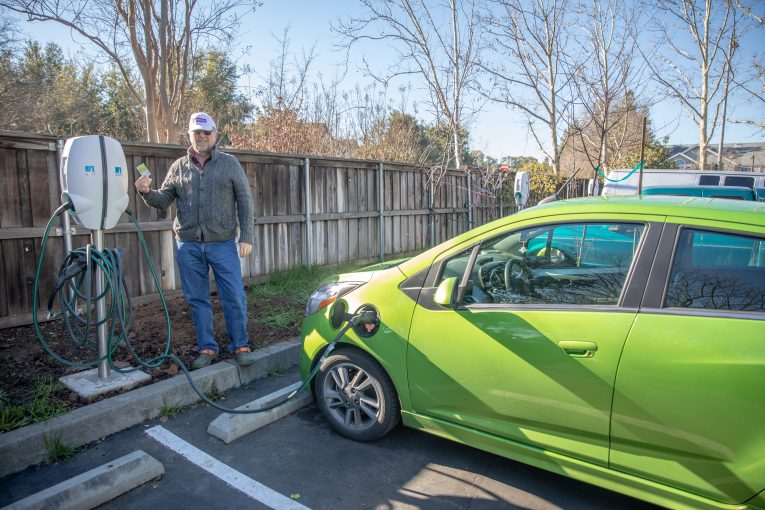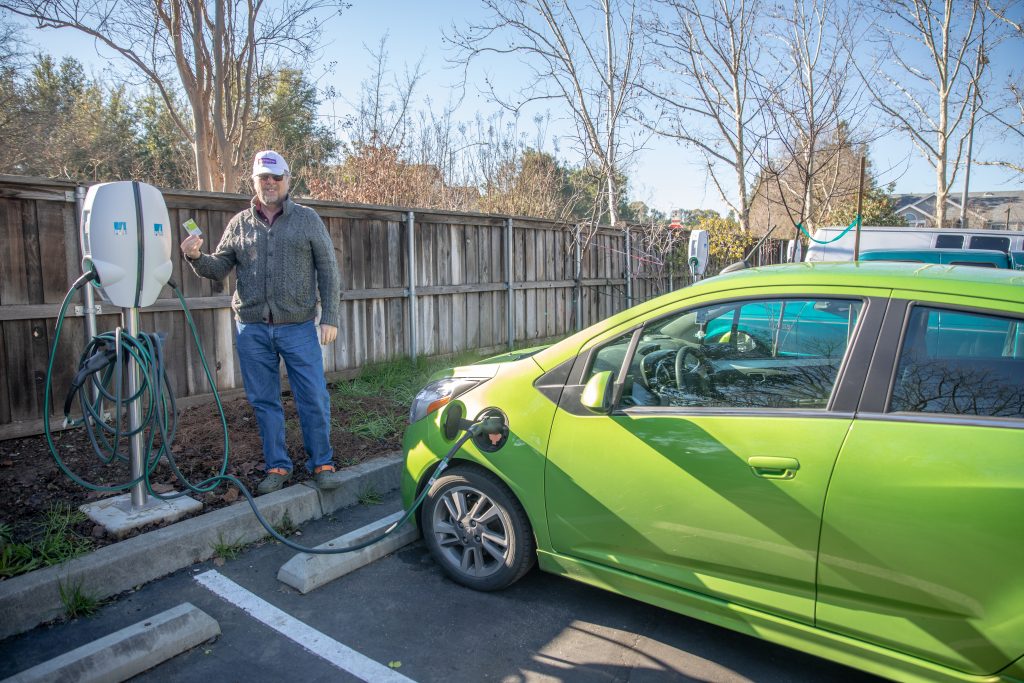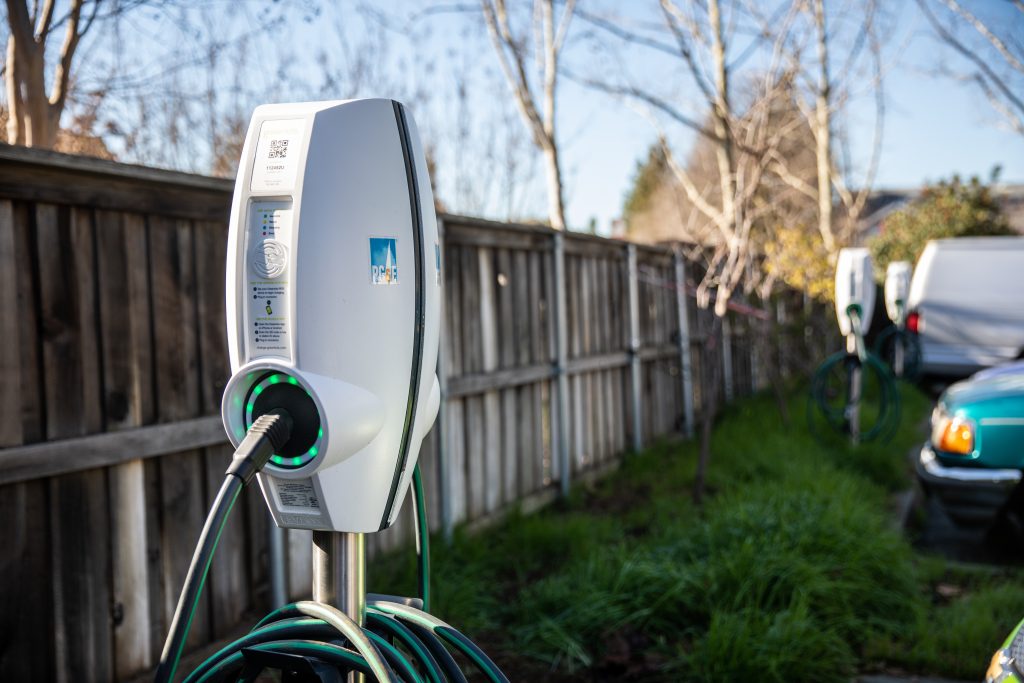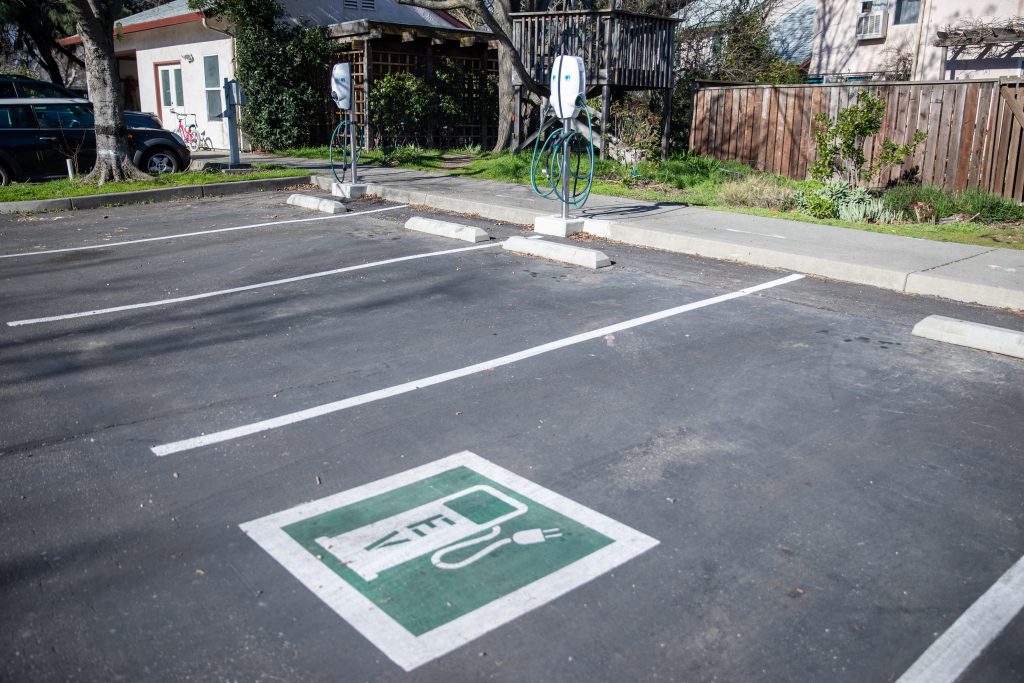

In November, Muir Commons had a groundbreaking ceremony to unveil what is believed to be a first in the nation: through a PG&E grant, Eugen Dunlap, a resident, was able to secure funding for 26 Electric Vehicle Charging Stations – one for each unit in the complex – making them the first multi-housing development in the nation with full EV charger coverage.
The grant was received through the EV Charge Network, a program helping California to transition to clean transportation options. The EV Charge Network program offers charger installation at workplaces and multi-unit dwellings such as apartment complexes.
It is funded by a two to three cent surcharge on people’s electricity bills.
Muir Commons was a co-housing community, modeled after similar structures in Denmark. It broke ground in November 1990 and opened in the summer of 1991. According to their website, currently it is home to approximately 45 adults and 35 children, with most of the homes being owner-occupied.

Eugen Dunlap told the Vanguard that they previously had just one charger for 20 years, and at times people’s needs would conflict. He became aware of the grant through a resident who worked at the Air Resources Board. It was Mr. Dunlap who applied for the grant due to his previous experience
Ultimately, they decided if they were going to apply for grant funding, they might as well have one per unit to avoid future conflicts and also avoid the need to possibly have to do additional upgrades into the future.

“That way we’re future proof,” Mr. Dunlap explained.
The cost of the installation was around $20,000 per charging unit. The cost increased because they had to put in new wiring and all of the infrastructure. The grant pays for most of that infrastructure, but there is about $1150 that each resident would have to pay themselves.
Some of the residents were resistant. However, Mr. Dunlap was able to find a grant for $600 per person from the Yolo-Solano Air Quality Management District. That dropped the cost down to about $550 per household for the charging stations, which they could pay as an add-on to their electricity bill at a rate of $20 to $30 per month.

While this was a future-looking effort to bring in the charging stations, it has had an impact on some of the residences. When he applied for the grant, Eugen Dunlap was the only one with an electric vehicle – however, just in the four months since the charging stations were installed, two additional residents purchased vehicles.
In addition, there is a nearby resident who also uses the stations to charge. So, since the charging stations were operational, the number of people using vehicles at the site has already gone up to 3.5.
Eugen Dunlap told the Vanguard he believes this is the first time these grants have been used for multi-unit dwellings as opposed to single family homes.
Generally speaking, assuming that the electrical wiring can support it, a charger for a house would be about $1150 – but individuals can also get a rebate of $500 or $600 to offset it.
Mr. Dunlap believes that other apartment complexes around town should attempt to bring in the infrastructure.
“I can just say, go for it,” he told the Vanguard. “There will never be more money available (for such grants) in the future – there will only be less.”
He believes that the cheapest way to do this is for new apartment complexes to put the charging stations in at the start. That way the infrastructure and electrical systems are in place when everything is being assembled, instead of having to put it into the ground after the fact.
—David M. Greenwald reporting

